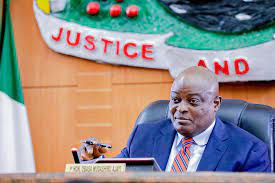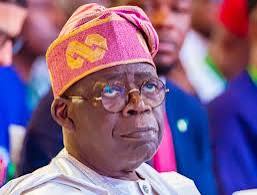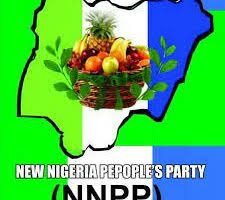Awaal Gata writes on the resolutions at the just-concluded AFRICAST 2014 which resonates with the NBC’s relentless efforts towards actualizing the much awaited digital terrestrial television switchover in Nigeria and the world at large
This year’s AFRICAST, which was themed:” Digital Broadcast Content: Production, Sourcing and Delivery,” held in Abuja between October 21 and 23, would no doubt spawn the final drive towards the much awaited digital terrestrial television switchover in Nigeria and the world at large.
The two-day conference provided a platform for stakeholders in the continent’s broadcasting landscape to converge and exchange ideas on content development in tandem with the possibilities offered by the new and emerging technologies.
The opening ceremony which was declared open by the Secretary to the Federal Government of Nigeria (SGF), Mr. Pius Anyim Pius, represented by Dr Ferdinand Agu, who is a Senior Special Assistant, Research and Development to the
Presidency, attracted dignitaries and broadcast experts from around the world. Some of the dignitaries in attendance were the Chairman House Committee on Information, Hon Umar Buba Jubril, Chairman of the NBC Board, Prof. Herbert Onye Orji and other Board Members; Commissioners of Information and former Directors General of the National Broadcasting Commission. Others were the Directors General of sister regulatory agencies and Chief Executives of government and private broadcast stations in Nigeria as well as other broadcast experts from around the world.
Participants at the conference were numbered 930 and 58 exhibitors all the way from the United Kingdom, Canada, Italy, China, Singapore, South Africa, Ghana and Nigeria.
Master Classes on Investigative Journalism and Digital Production also featured in the event as well as 14 presentations taken in five plenary sessions which talked about the importance of contents in the drive towards a successful digital environment
In the sessions, there were emphasis that, “in the digital era, content is fundamental, as all advancements in broadcast technologies are intended to deliver quality content to the audience.”
Nevertheless, to enhance good content generation, NBC, as confirmed at the event, is working towards establishing a two hundred billion Naira broadcasting fund for Nigeria. The Commission would also provide grants and revolve loans among stakeholders for capacity building.
Among the observations made at the conference, the country’s broadcasting industry is in the middle of a dramatic transformation in which majority of Nigerians currently access only free to air (FTA) and this is likely to continue, and the projection of Pay TV is expected to hit 25% of TV HH by 2017.
Other observations were that the current quality of TV offering is below expectation and do not adequately reflect wide diversity of communities in Nigeria, and involvement of analogue operators in developing future DTT.
It was also observed that government support and massive public awareness campaign are very crucial for the success of the digital switchover as attested to at the pilot switchover in Jos.
Although the switchover date for Nigeria is 1st January, 2015, a four-phased switch off timeline planned before the date is being implemented for Nigeria, all other ECOWAS states also respectively agreed to the timeline.
The conference however did not end without resolution, some of which include: “Protection of values by the NBC by ensuring that producers are enabled to produce local programmes, instead of relying heavily on cheap foreign programme; creation of a comprehensive business plans for the broadcast industry; provision of the required platforms for professional by the NBC.
“The NBC should weed out the many mediocre in the broadcasting industry to allow investors deal with qualified professionals; audition and recording of finances in the industry; and advocating for government’s backing in the entire process.”
Other resolutions were that some sections of the code considered as impediment to commercial broadcasting should be expunged; NBC should ensure that the 70–30 local/foreign content dichotomy for terrestrial broadcasters is fully respected; channel owners should have a clear vision of what they want to do as one channel cannot satisfy every spectrum of the society; and urgent steps should be taken to make Set-Top-Box available to ensure smooth switch over process.
These and other resolutions at the conference, if implemented, will, no doubt, herald the needed change in the industry.



